Free Book Review Template for Writing Insightful Reviews
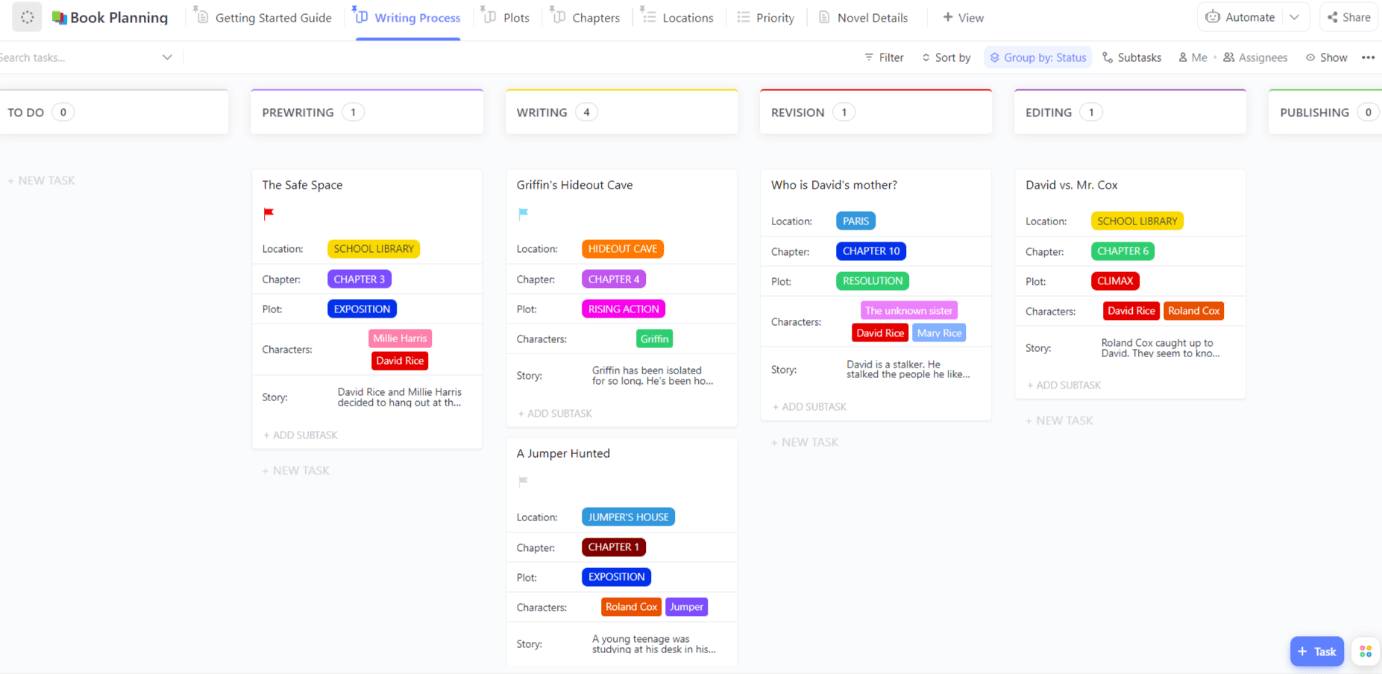
Sorry, there were no results found for “”
Sorry, there were no results found for “”
Sorry, there were no results found for “”

Writing a book review can be surprisingly tricky.
Especially when you’re trying to sum up your thoughts without spoiling too much or sounding like a fan letter.
You might love a book to pieces, but putting that into words in a clear, structured way is where things often get messy.
This is where a book review template can help. 🤝
Instead of staring at a blank page, wondering where to begin, a template gives you a solid starting point. It breaks down your review into clear sections—like a summary, personal takeaways, themes or characters analysis, and final verdict—so you’re not left guessing what to include.
We’ve compiled links to effective review templates to help you craft book reviews that capture your insights, emotions, and the author’s purpose. Let’s dive in.
A book review template is a clear, structured outline that helps you write reviews effectively. It guides you in organizing your thoughts and ensures you cover all the key elements—from the book title and plot summary to your personal evaluation and final recommendation.
Here are some important elements that these content writing templates should include:
✅ Introduces the book title, author, publisher, and publication date, and provides brief context
✅ States your overall opinion in a clear thesis
✅ Summarizes the plot concisely and presents the main character, setting, and key themes without major spoilers
✅ Highlights strengths and weaknesses, using examples to discuss character development, writing style, and tone
✅ Shares your critical opinion, compares the book with similar titles, and ends the comment with a clear recommendation
Here’s a quick breakdown of our roundup:
| Template Name | Download Template | Ideal For | Best Features |
| ClickUp Review Template | Get free template | Readers, students, bloggers | Modular sections, custom fields, status tracking |
| ClickUp Heuristic Review Template | Get free template | Reviewers, critical readers | Heuristic checkpoints, scoring matrix, collaborative comments |
| ClickUp Customer Satisfaction Survey Template | Get free template | Students, book clubs, review writers | Timeline/milestone tracking, sectioned outlines, drag-and-drop |
| ClickUp Book Planning Template | Get free template | Reviewers, students, authors | Timeline, milestone tracking, sectioned outlines |
| Monthly Book Review Template by Adobe | Download this template | Monthly slots, numeric rating, minimalist design | Adobe PDF |
| Book Report Template by Adobe | Download this template | Creative prompts, drawing, moral reflection | Adobe PDF |
| Literary Plot Analysis Template by Adobe | Download this template | Characters, conflict, climax, resolution, devices | Adobe PDF |
| Book Review Template by Twinkl | Download this template | Young readers, classrooms | Visual prompts, drawing, printable/digital |
| Book Review Template by Discovery | Download this template | All ages, fiction/nonfiction | Dual-format, star ratings, pros/cons, quotes |
| Presentation Book Review Template by Slidesgo | Download this template | Visual learners, students, content creators | Editable slides, timelines, ratings, graphics |
| Book Review Template by Read Write Think | Download this template | Educators, students | Step-by-step prompts, printable, digital fill-ins |
| Book Review Template by Thompson Rivers University | Download this template | Academic reviewers, students | Four-part format, analysis prompts, PDF |
| Book Review Template by Freepik | Download this template | Teachers, young students | Visuals, rating scales, drawing fields |
| Book Review Template by World Book Day | Download this template | Early learners, group activities | Fill-in-the-blank, emotional reflection, quick completion |
| Mini Book Report Template by Teach Starter | Download this template | Elementary students | Foldable booklet, visual mapping, compact format |
| Book Review Template by Teachit | Download this template | Middle/high school students | Scaffolded questions, analytical prompts, editable |
A good book review template helps writers stay focused, organized, and objective. Simultaneously, it encourages balanced opinions, reduces rating bias, and guides you through the documentation review process.
Here’s a more detailed breakdown:
Without further ado, here are 16 of the best book review templates to help you write pieces that are relatable to other readers.
Whether you’re working on book reports or posting Instagram reviews, these templates make it easier to structure your summary, analysis, and opinions.
Originally designed for business project reviews, the ClickUp Review Template can come in handy when structuring detailed book reports.
Think of your latest fiction book as a project—one with a plot, pacing, and characters that unfold across different phases.
This template allows readers to analyze each “stage” of the story, reflect on what worked (or didn’t), and organize feedback in a way that’s both critical and insightful.
🌼 Why you’ll love this template
✨ Ideal For: Readers, students, or bloggers who want a structured, analytical approach to reviewing story progression and plot clarity.
💜 Bonus: AI Fields in ClickUp make managing book reviews effortless by automatically analyzing each review to capture the overall sentiment, summarize the main points, and extract key details like highlights or recommendations.
Instead of manually updating fields, the AI keeps everything current—so as you write or edit your review, it instantly tags whether your feedback is positive or negative, generates a concise summary, and pulls out important insights. You can even customize what the AI extracts by writing your own prompts, making it easy to organize and understand your book reviews at a glance.
Primarily built for evaluating user experiences, the ClickUp Heuristic Review Template can be creatively adapted to write book reviews focusing on structure, flow, and reader engagement.
Just like a UI, a fiction book or nonfiction title should guide its audience smoothly through its plot, characters, and key themes.
Using this template, you can pinpoint where the story excels, where it drags, and which parts might confuse or disengage readers.
The ClickUp Heuristic Review Template is especially helpful for analyzing writing style and narrative clarity.
🌼 Why you’ll love this template
✨ Ideal For: Reviewers who want to evaluate a book’s structure, flow, and reader engagement with a UX-style lens.
🧠 Fun Fact: French novelist Honoré de Balzac kickstarted his writing marathons with up to 50 cups of coffee a day—no espresso, no progress. Ironically, the literary legend who energized European fiction may have been undone by his favorite fuel: caffeine overdose.
Customer feedback and book reviews are similar: both reflect real experiences and honest opinions.
ClickUp’s Customer Satisfaction Survey Template, primarily meant to capture customer feedback, can be a powerful tool for readers and reviewers who want to assess how well a book resonated with its audience.
You can use this template to evaluate the emotional impact, character relatability, and plot effectiveness of the book, as if it were a product being reviewed.
This review tool is especially helpful for students or book club members trying to write book reviews that go beyond personal opinion and consider what other readers might feel.
🌼 Why you’ll love this template
✨ Ideal For: Students or review writers looking to assess emotional impact and broader audience resonance beyond personal opinion.
📖 Also Read: Free Customer Review Templates
While created for authors, this ClickUp Book Planning Template is also a goldmine for those who want to understand the structure behind a fiction or nonfiction book deeply.
Here’s how it works: By reverse-engineering a story’s flow, main characters, and major plot points using this template, students and reviewers can gain insight into how the book was constructed.
It’s the best writing tool for breaking down themes, mapping out plot summary points, and organizing your review before you even start writing.
This approach is particularly useful for long or layered books, where staying organized is key to writing a clear, balanced book review.
🌼 Why you’ll love this template
✨ Ideal For: Reviewers who want to evaluate a book’s structure, flow, and reader engagement with a UX-style lens.
💜 Bonus: Brain MAX is your AI-powered desktop companion designed to make capturing and organizing your ideas effortless. When it comes to book reviews, Brain MAX’s Talk-to-Text feature is a game-changer.
Instead of typing out your thoughts, you can simply speak your impressions, favorite quotes, and key takeaways as they come to you—whether you’re on the go or relaxing at home. Brain MAX instantly transcribes your spoken words, helping you brainstorm and reflect in real time.
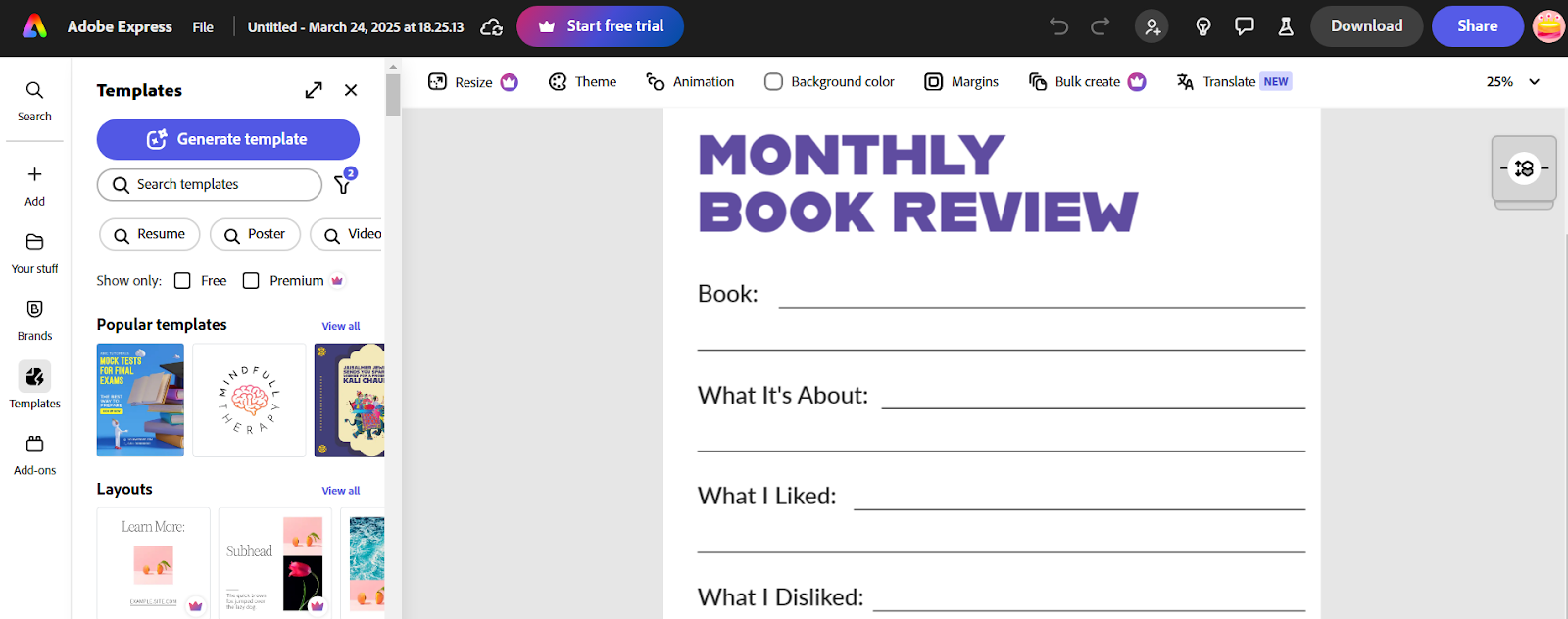
Simple yet effective, Adobe’s Monthly Book Review Template is effective for quick reflections and recurring book reports. This template covers the essentials—book title, plot summary, likes, dislikes, and a final rating.
The minimal format keeps your thoughts focused and your review easy to follow without skipping key elements.
The Monthly Book Review Template is especially helpful for building a consistent review habit, whether you’re documenting your favorite reads or critiquing a newly discovered fiction book.
The 10-point scale used in the template also encourages more thoughtful scoring by giving room for nuance.
🌼 Why you’ll love this template
✨ Ideal For: Habitual readers who want a consistent, quick way to reflect on books each month without skipping key points.
💡 Pro Tip: Struggling to stay focused in a world of constant pings and scrolls? Digital Minimalism Summary: Key Takeaways & Book Review breaks down Cal Newport’s practical strategies to help you reclaim your time and attention.
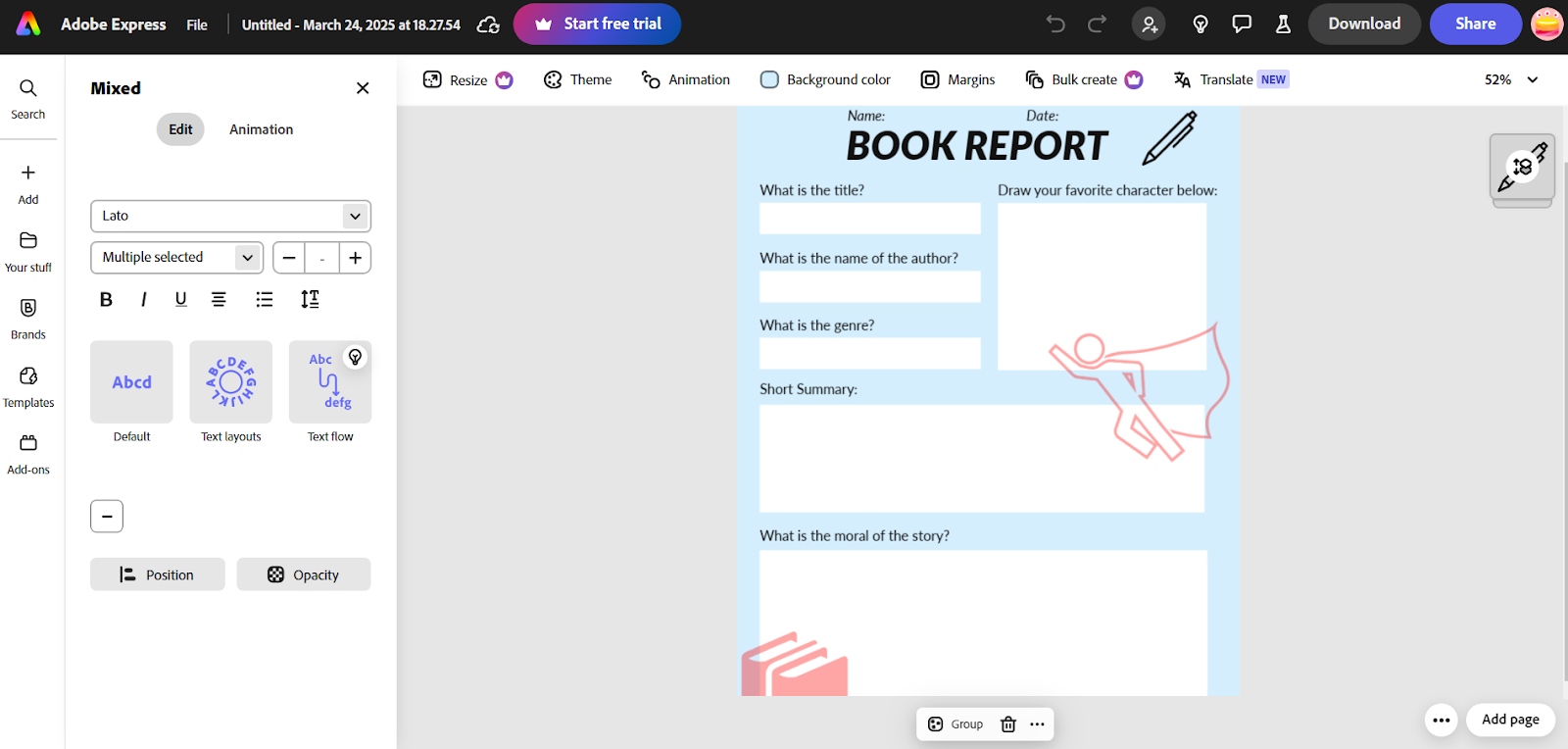
Are you a young reader or the parent of one? Then this Adobe Book Report Template will bring a creative twist to classic book reviews.
With writing prompt examples like drawing your favorite character and identifying the moral of the story, this template encourages deeper engagement while making the review process fun and reflective.
The Adobe Book Report Template also covers all the core elements—book title, author, genre, and a summary—giving kids a structured way to write about what they’ve read.
🌼 Why you’ll love this template
✨ Ideal For: Kids and parents seeking a creative, guided way to build early review-writing and comprehension skills.
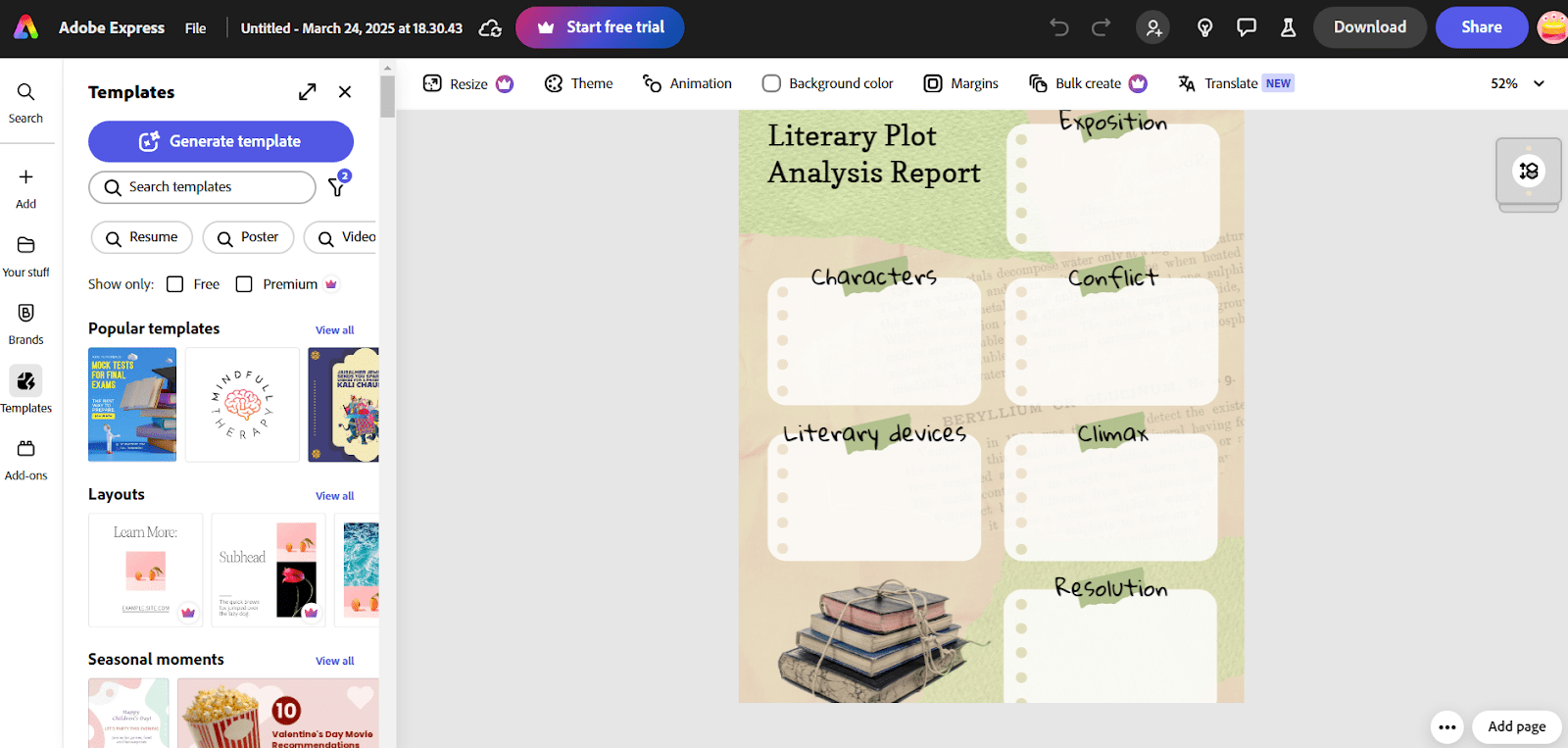
Adobe’s Literary Plot Analysis Template dives straight into the heart of storytelling by focusing on classic narrative structure.
🌼 Why you’ll love this template
First of all, it offers dedicated sections for:
✅ Characters
✅ Conflict
✅ Climax
✅ Resolution
✅ Literary devices
This makes the template a good option for anyone wanting to break down the plot of a fiction book in detail. Whether you’re writing a formal book report or a critical review, this template helps you analyze how the story unfolds and what makes it effective.
✨ Ideal For: Students and critical readers who want to analyze plot structure, literary devices, and story flow in depth.
📖 Also Read: 8 AI Peer Review Tools for Accurate Feedback
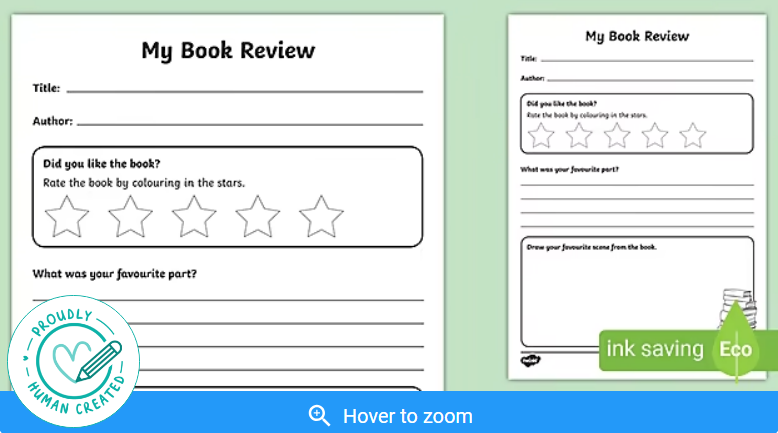
The Book Review Template by Twinkl offers a kid-friendly and engaging way to help young readers explore their opinions through structured reflection.
With prompts to identify the book title, author, plot summary, and main characters, this template by Twinkl also encourages creativity through drawing scenes or describing favorite parts.
Moreover, the template introduces key elements of a review while supporting literacy, comprehension, and critical thinking.
🌼 Why you’ll love this template
✨ Ideal For: Young readers exploring reviews for the first time with engaging visuals and simple prompts.
🧠 Fun Fact: Alice in Wonderland is often debated for its trippy, surreal themes—but China banned it in 1931 for a very different reason: talking animals. The Governor of Hunan Province had argued that animals speaking like humans blurred moral boundaries by putting them on the same level.
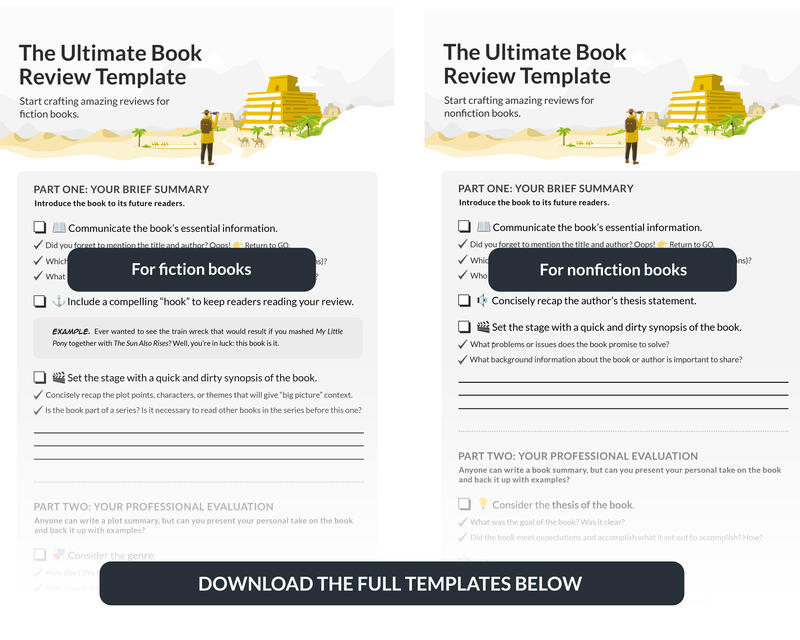
The Book Review Template by Discovery offers a practical and flexible format designed for nearly every type of review.
Divided into two focused versions—one for fiction books, one for nonfiction—it helps readers structure their thoughts clearly while covering essential elements like plot summary, character analysis, and personal recommendation.
Additionally, the template guides you through the review process with questions that prompt both reflection and evaluation.
You’ll also find creative add-ons, such as star ratings, pros and cons lists, and favorite quotes, to personalize each book review.
🌼 Why you’ll love this template
✨ Ideal For: Readers of all ages looking for a flexible, easy-to-use template with both structured questions and personalization.
💡 Pro Tip: Starting a new leadership role and unsure where to begin? “The First 90 Days” Summary: Key Takeaways and Review gives you a step-by-step strategy to hit the ground running with confidence.
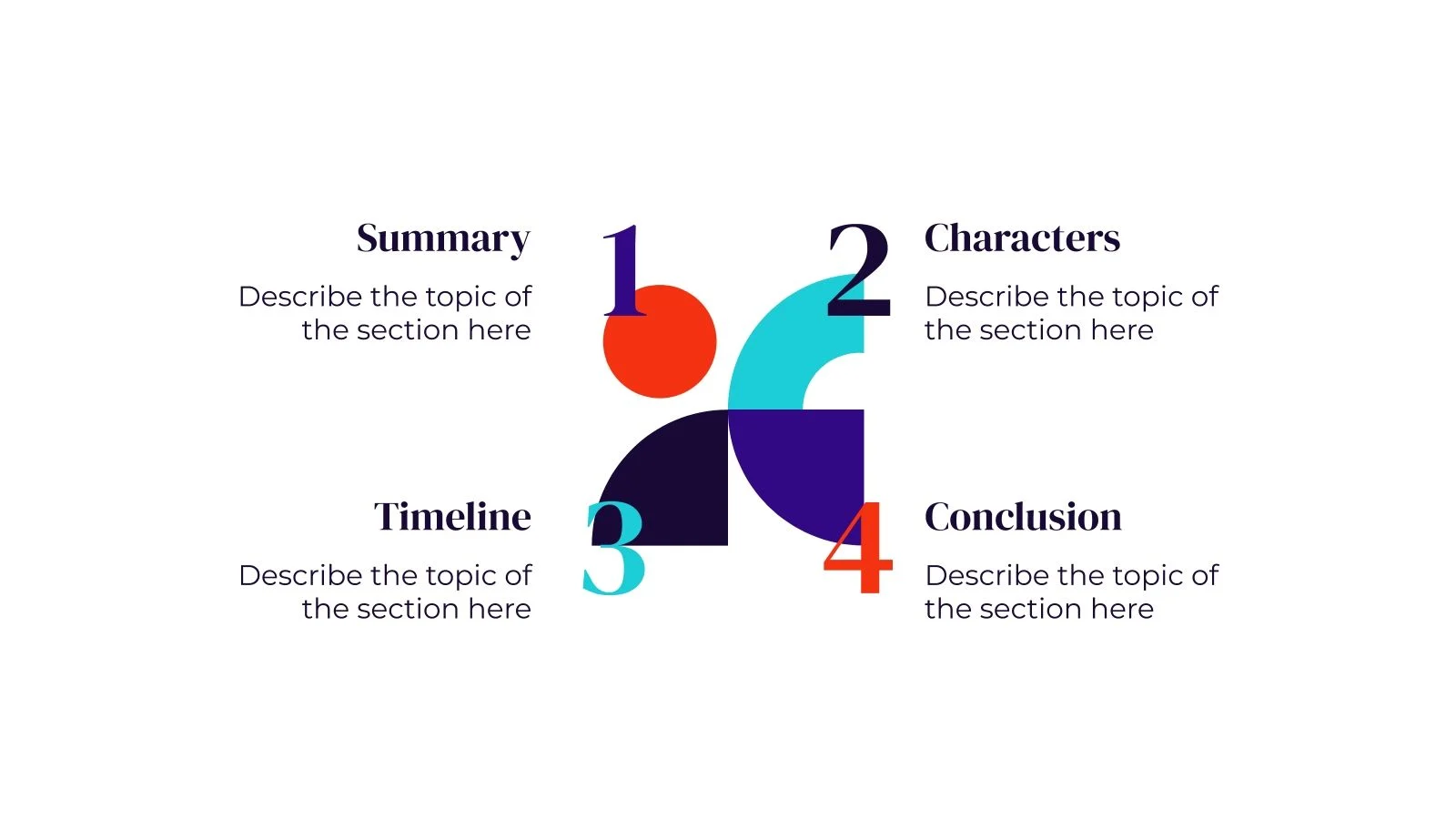
The Presentation Book Review Template by Slidesgo is made for visual learners and presenters who want to bring their book reports to life.
Designed for Google Slides, PowerPoint, or Canva, this template allows readers to present any book using editable slides featuring plot summaries, character timelines, chapter maps, and visual ratings.
This format is perfect for students, book clubs, or bloggers who want to share reviews in a more engaging, interactive way—especially on platforms like YouTube or during classroom discussions.
🌼 Why you’ll love this template
✨ Ideal For: Visual learners, students, and content creators who want to present book reviews interactively and creatively.
📮ClickUp Insight: 50% of our survey respondents report Friday as their most productive day. Fridays tend to have fewer meetings, and this, combined with the context accumulated from the workweek, could mean fewer disruptions and more time for deep, focused work.
Want to retain Friday-level productivity all week long? Embrace async communication practices with ClickUp, the everything app for work! Record your screen with ClickUp Clips, get instant transcriptions through ClickUp Brain, or ask ClickUp’s AI Notetaker to step in and summarize meeting highlights for you!
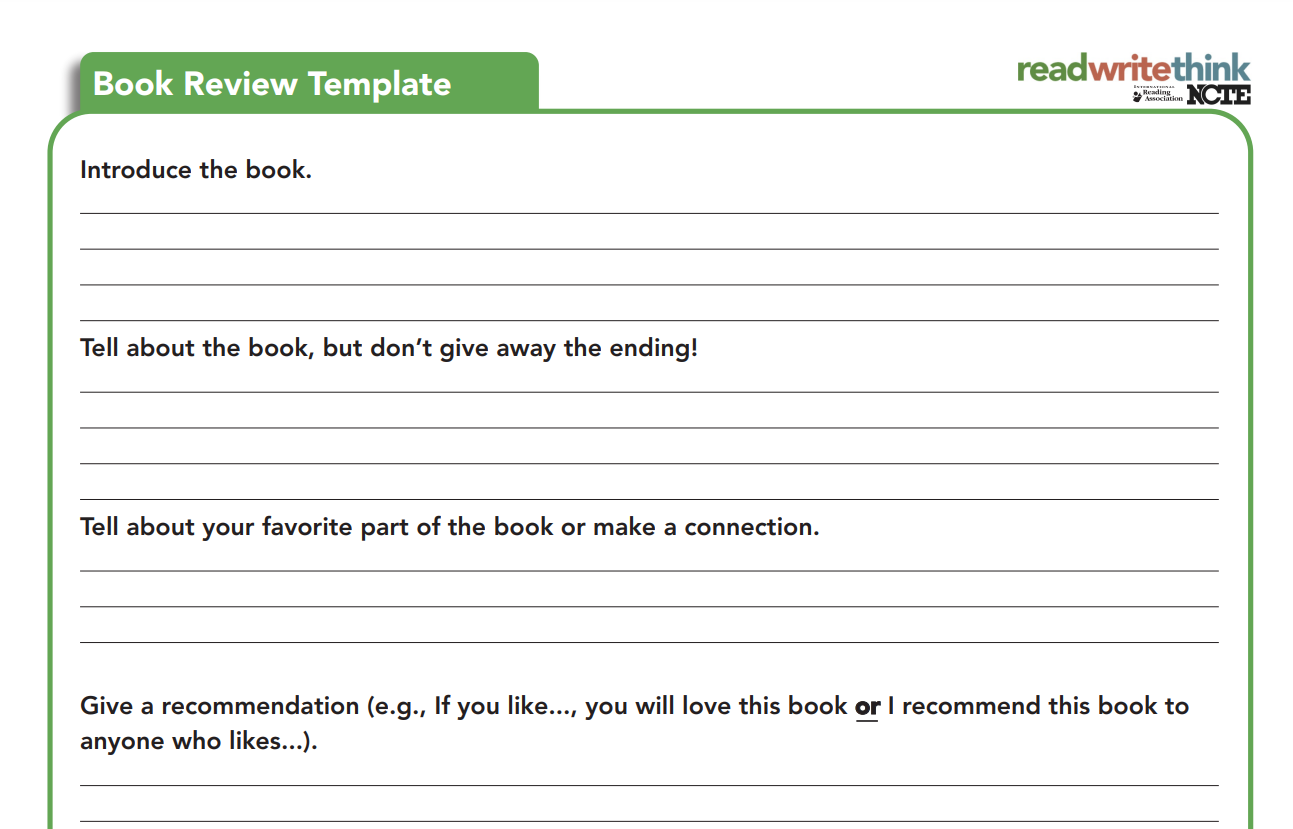
Designed by educators and backed by the NCTE, the Book Review Template by Read Write Think is a reliable classroom staple for students across all grade levels.
This template guides young readers through the process of expressing their ideas, offering prompts to help them describe the book title, reflect on the plot, and share personal opinions.
Since this template is designed for early literacy development, it supports comprehension and critical thinking and encourages students to write book reviews with purpose.
Plus, teachers can also use this template to assess understanding and build classroom discussions around themes, characters, or genres.
🌼 Why you’ll love this template
✨ Ideal For: Educators and students who want a classroom-ready format to support comprehension and expression.
💡 Pro Tip: Drowning in revisions and legalese? This How to Use AI to Review Documents guide shows you how to speed up document review and reduce costly errors with smart automation.
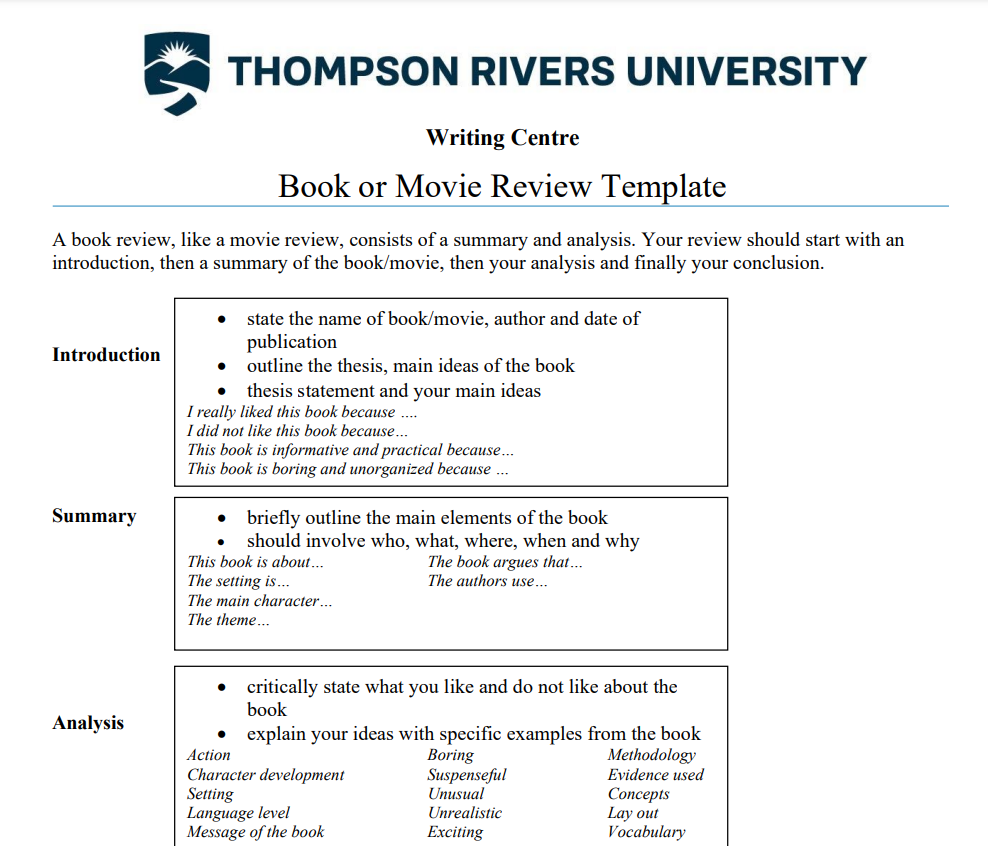
The academic-style Book Review Template by Thompson Rivers University offers a no-fluff approach and follows a clear four-part format for writing book reviews.
🌼 Why you’ll love this template
It comes with dedicated spaces for:
✅ Introduction
✅ Summary
✅ Analysis
✅ Conclusion
Reviewers are encouraged to include the book title, author, genre, and a concise plot summary while connecting to other texts or personal experiences.
The analysis section is particularly valuable, prompting specific opinions supported by examples—from character development and themes to writing style and layout.
✨ Ideal For: Academic reviewers and students writing formal, well-structured reviews with clear analysis and conclusions.
💡 Pro Tip: Struggling with unclear video edits and endless revisions? The How to Review and Give Effective Video Feedback shows you how to give clear, actionable input that gets results.
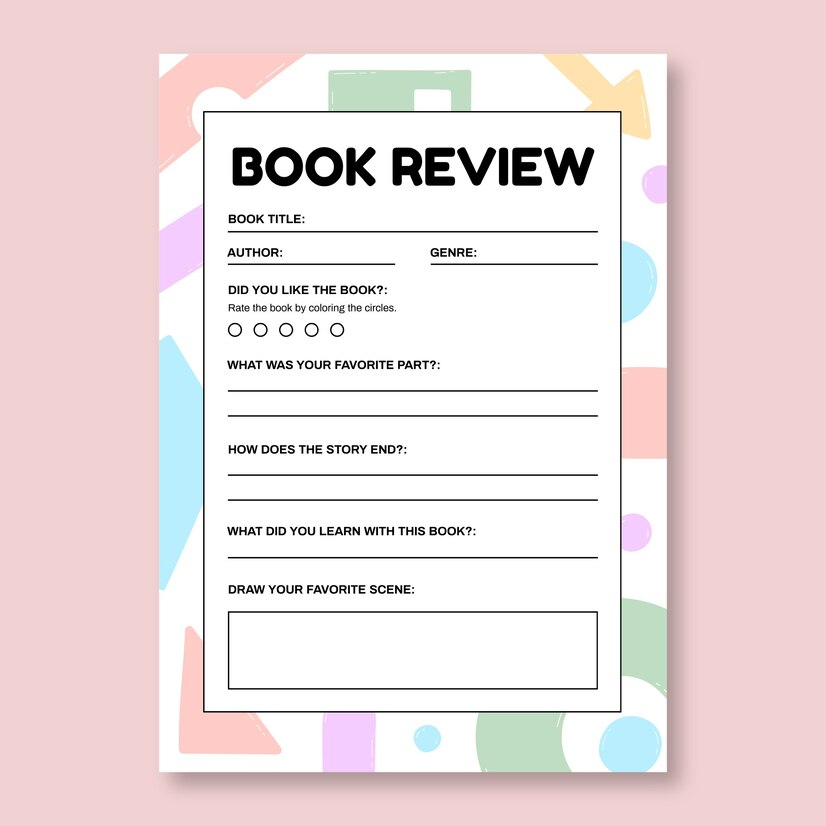
Bright, engaging, and visually appealing: The Book Review Template by Freepik can easily become your classroom option.
This template prompts students to list the book title, author, and genre; rate the book with a simple visual scale; and reflect on the story’s ending, favorite parts, and what they learned.
A standout feature is the space to draw your favorite scene, which adds a creative touch that encourages deeper connection and engagement with the characters and plot.
🌼 Why you’ll love this template
✨ Ideal For: Teachers and young students who want a colorful, creative option that combines visual engagement with thoughtful reflection.
📝 Read More: How to Use AI to Review Documents
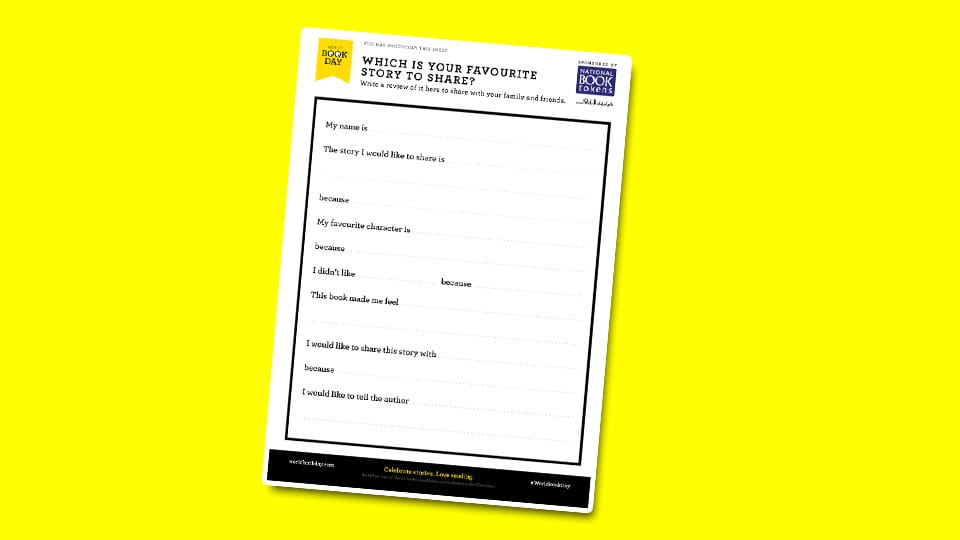
This Book Review Template by World Book Day is a fun and reflective tool that encourages young readers to share their thoughts and feelings about their favorite reads.
The template starts with prompts like naming your favorite character, explaining how the book made you feel, and even suggesting what you’d tell the author.
And if you have younger students who are just learning how to write book reviews in a personal and expressive way, this template offers a simple fill-in-the-blank format.
🌼 Why you’ll love this template
✨ Ideal For: Early learners developing personal expression and emotional connection through simple, fun review formats.
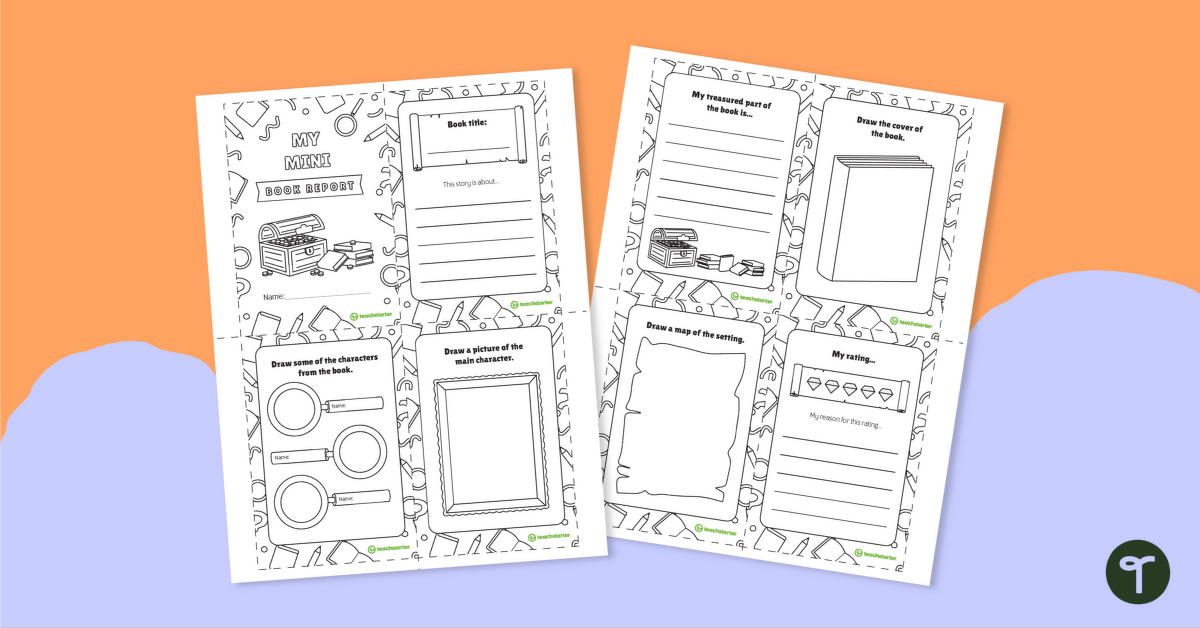
The Mini Book Report Template by Teach Starter turns the review process into a hands-on, creative project for young readers.
Structured like a foldable booklet, this template prompts students to fill in key details such as the book title, a short plot summary, and a drawing of the main character and cover.
There’s also space for a rating, personal reflections, and even a map of the story’s setting—helping students connect visually and emotionally with the book.
🌼 Why you’ll love this template
✨ Ideal For: Elementary students who prefer hands-on, interactive templates to make the review process more engaging.
📖 Also Read: Rich Dad Poor Dad Summary
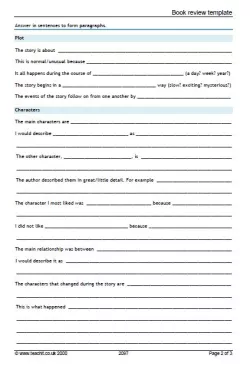
Need differentiated versions for various skill levels? This Book Review Template by Teachit is a classroom-ready, scaffolded resource.
This template encourages deeper reflection with questions about emotional impact, narrative technique, and comparisons to other books—helping students reflect while developing analytical skills.
This book review template is especially helpful for teaching the difference between personal opinions and textual analysis, making it a strong fit for English lessons or independent reading projects.
🌼 Why you’ll love this template
✨ Ideal For: Middle and high school students learning to balance opinion with analysis and improve their critical thinking.
🧠 Fun Fact: When Les Misérables was released, Victor Hugo was on vacation and sent his publisher a one-character telegram: “?”. The reply? Just “!”. Possibly the shortest (and most successful) book review ever.
United Way Suncoast’s Creative Director, Jodi Salice, can’t get enough of ClickUp:
I can’t say enough good things about it. Between the automation, templates, and all the different sorts of tracking and views, there’s just no way to go wrong with ClickUp.
You’ll feel the same way once you experience ClickUp’s flexible templates, including its book review template. Stay organized, structure book reports, and manage content from plot summary to final review.
Ready to write book reviews your readers will want to read? Sign up on ClickUp!
The four main parts of a book review are:
1. Introduction: Presents the book’s title, author, and a brief overview
2. Summary: Gives a concise description of the plot or main themes
3. Analysis/Evaluation: Discusses the strengths, weaknesses, and your opinions about the book
4. Conclusion/Recommendation: Summarizes your overall impression and states whether you recommend the book
A typical book review format includes:
Title and author of the book
Brief summary of the content
Analysis of key elements (such as characters, plot, writing style)
Personal evaluation and critique
Recommendation for potential readers
Structure your book review as follows:
1. Start with an introduction that includes the book’s details and your initial thoughts
2. Summarize the book without giving away spoilers
3. Analyze and evaluate the book’s components, such as plot, characters, and writing style
4. Conclude with your overall impression and recommendation
“The Silent Patient by Alex Michaelides is a gripping psychological thriller that kept me guessing until the very end. The story follows Alicia, a woman who refuses to speak after being accused of her husband’s murder. The author masterfully unravels the mystery through the eyes of her therapist, Theo. The plot twists are clever, and the pacing is excellent. I highly recommend this book to anyone who enjoys suspenseful, character-driven stories.”
© 2026 ClickUp